By Uran Kalakulla
Part forty-two
Nazism and communism
Memorie.al / Nazism lasted 12 years, while Stalinism 2 times longer. In addition to many common characteristics, there are many differences between them. The hypocrisy and demagogy of Stalinism was of a more subtle nature, which was not based on a program that was openly barbaric, like Hitler’s, but on a socialist, progressive, scientific and popular ideology, in the eyes of the workers; an ideology that was like a convenient and comfortable curtain to lie to the working class, to lull the sharpness of intellectuals and rivals in the struggle for power.
One of the consequences of this peculiarity of Stalinism is that the entire Soviet people, its best, capable, hardworking and honest representatives, suffered the most terrible blow. At least 10-15 million Soviets lost their lives in the torture chambers of the KGB, martyred or executed, as well as in the gulag camps and others like them, camps where it was forbidden to correspond (in fact, they were prototypes of the Nazi death camps); in the mines in the ice of Norilsk and Vorkuta, where people died from cold, hunger, from crushing work in countless construction sites, in the exploitation of forests, in the opening of canals and during transportation in leaded wagons, or in the flooded barns of the death ships.
Continued from the previous issue
And then Gjergji openly showed me, with passion and without getting tired at all, his great admiration for comrade Enver! No, I am not making anything up, dear reader, I am telling the whole truth, even if it is a bitter truth, even a very bitter one, about a political prisoner, who was neither a spy nor a hypocrite and a scoundrel, much less a provocateur, but a sincere man, in whom an anomaly had occurred, that his mind had not grown in proportion to his large body.
According to Gjergji, Enver Hoxha was a leader, as great and far-sighted as he was brilliant in mind and with a very broad and deep cultural preparation. He could easily be equated, not only with Mao and Stalin, but also with Lenin, coming quite close to Marx and Engels themselves. I listened and listened patiently, with pain in my soul, to my fellow sufferer, and when my patience ran out, I would turn to him in Arabic, not only for Enver, but for all the names listed above, of course according to the degree of their seriousness, values and responsibilities. Because I was not at all ignorant in the field of Marxism, even if starting simply from Lenin’s saying that you cannot fight the enemy properly if you do not know him well, even very well.
And so the debate grew deeper, especially towards Enver. And then I told Gjergji that I had collected a lot of materials and facts from his life and “works” and as soon as I get out of prison, I will write a monograph for him, as he deserves, this “great leader of the Albanian people”. Gjergji came out of prison before me, because he had necessarily been sentenced much less than me. And we never met again in “free life”. In the early dawns of Albanian “democracy”, in those initial turmoils, Gjergji found a path and went with his whole family to Switzerland, apparently where his noble father had lived for years and years. And he lives there to this day.
I have, more rarely, an exchange of friendly letters, where he talks to me mainly about his tourist trips to Western Europe. And I, of course, am delighted with him with all my heart. Except, if I knew that the cabbages of Marxism still remained in his head, I would write to him to go to London, to High Park, the famous cemetery, to take a bouquet of flowers, find Marx’s grave and lay them on his head. And, if he ever gets the urge, to return to Albania, to do the same thing, to the moved grave of Enver Hoxha, in Sharra, Tirana. Thus, the irony of fate is truly a great wonder, both to laugh at and to cry at.
Anatomy of Prison Villains
Man can also adapt to the difficulties and adversities of life, the blows of fate. Thus, the prisoner tries, with will, courage and wisdom, to face with dignity physical suffering, heat and cold, diseases and torture, extreme hunger and poverty, arrogance, arrogance, insults from the guards or prison superiors. But, if he is truly a formed man, who has dignity at heart, he suffers even more from the inevitable physical deficiencies, from the moral deficiencies, from the spiritual filth that surrounds him, almost in every environment of the prison, at every moment of that life, which is not life, but a vegetation of that grave of the living, as the genius writer of human suffering, Fyodor Dostoevsky, called prison in his time.
Even the simplest prisoner, whether peasant or worker, uneducated, with a limited spiritual world, suffers not only from hunger and poverty, from the hardships of forced labor or other such shortcomings, but also suffers when he is insulted, touched in the face, when he cannot find any way to escape these atrocities, but is forced to live, with his soul in his throat, amidst the mire of meanness and spiritual misery. The communist regime, in addition to the moral degeneration of man, of the Albanian citizen, necessarily tried by all means to degenerate, as well, even with priority, the political prison, where it had locked up between thick walls and crossed bars, its determined political opponents, the so-called “enemies of the people”.
Of course, it could not achieve this immediately, but step by step, in the end, just as it acted with the mass of the people outside the prison walls, year after year, decade after decade, aiming to “build” the so-called “new man”, of the “socialist” reality. And this man turned out to be a humble, cowardly sheep, who was content only with the ration of grass that the party power gave him. It turned out that this “man”, for us, was a work animal, obedient and who allowed himself to be exploited to the core. It turned out that this “man” was willing to remain ignorant, even though he supposedly attended school, even to the university, that he knew life, the history of the country and the world as the party wanted, that is, upside down.
Also, that he knew and accepted morality, only as humility, to the point of servility, that instead of courage, he had embraced fear, that denunciation, that is, espionage, was a “patriotic duty”. And even, when the loop of poverty and deprivation came and narrowed, he also learned to become a thief, stealing the wealth of the state, which at its base had the wealth of the people, of the citizens. And if espionage was the first premise of “loyalty” to the party and the government wasn’t this espionage, a boomerang to his own civil freedom, personal freedom, freedom of thought and conscience?
The Party’s paranoid mania, to even control women’s panties, let alone others, was not just a mania, but a clear goal, to extinguish any attempt at freedom and action in its infancy. And I confirm this statement of mine with a piece of information that one of the former heads of Enver Hoxha’s Ministry of Interior, now also imprisoned, the late Maqo Çomo, told me during my imprisonment: “In 1949, we had 100,000 registered Sigurimi agents”! So then, when the “popular power” had not yet turned five years old…! And when Albania, I don’t know if it had a population of a little more than a million! But in 1959, ’69, ’79), ’89).
If we add 2 times 100,000 for every decade, we have 200,000 spies! So in five decades, we get a shocking figure: 1,000,000 spies! Oh God, what horror! So, when after the fall of the Berlin Wall and the unification of the two Germanys, the names or numbers of spies and activists of the STAS (East German Secret Police) were made public, I was not surprised at all. Bolshevism, that is, communism, did not rely at all on the working and peasant classes, as it loudly declared, but on the State Security and its spies.
With this simple logic, could it, the “popular power”, not poke its nose into the political prison, into this sole “island” of anti-communist freedom, into this island of “reaction” and even into the “Central Committee” of this “reaction”, as the communists otherwise called the Burrel prison? Without what, that in itself was a living grave? The security, that is, the Party, with “comrade” Enver at the head, wanted to know what was going on in the prison, how it was being talked about, what was being prepared? Could it be that there (even though within the thick walls and bars, surrounded by bodyguards, with machine guns and searchlights, damn the border), was some revolt being prepared, once in one prison and then in other prisons, then in the forced labor camps, in the numerous places of internment and our “beloved popular power”, that is, the warm armchair of Pharaoh, was being overthrown?
That’s why spies were needed in prison. And if they didn’t emerge from within, from the work of Sigurimi operatives and the coercion, threats and violence exercised, they had to be brought in from outside, especially from prisons, especially ordinary elements, as easier to convince and recruit. Even if they had a small “hostile” article, at least a 3-year sentence, for agitation and propaganda.
Thus and only thus, year after year, the Sigurimi aimed and, to a certain extent, succeeded in polluting the Burrel prison, the pure and homogeneous environment, by instilling within it, suspicion, fear, contempt, distrust, insecurity, almost the self-enclosure of the convicts. And such a phenomenon, as far as I know, from the literature on political prisons of all times, has never happened, at least to the extent as in communist prisons.
And not only in Albania, but also in the Soviet Union and in every corner of the world, where the cursed red flag with the hammer and sickle of Russian Bolshevism has ruled. From 1944, when prisons began to fill up all over the country, from the South to the North, spies were on their fingers: someone who had been “collapsed” by the investigator from torture, demagogy of promises, and weakness of character or, was recruited by the operative in prison. And these few “fingers”, were known by all the convicts, they were even isolated. But they also beat the convicts themselves badly, putting a blanket over them and they fell…!
But later, this evil seed, as I said before, came and increased, so much so that in the notorious camp of Spaç or, in that of Qafë-Bar, especially after the violent and bloody suppression of the mass revolts, the number increased so much that it was not known how many were made. It is said that once upon a time, the Pasha of Ioannina had captured a very dangerous thief, who had left no mischief or crime undone: theft and robbery, dishonor and murder, and had spared neither Turk nor cowherd, neither rich nor poor. And it was said that this thief was, to say the least, even proud. When the guards brought him before the Pasha, they asked him:
– “What should we do with this, Pasha, shoot him, hang him on a rope or cut off his head with a machete”?
– “No, no, no! None of these, you are being put in prison”!
– “How, Grand Pasha, is that so? But this one has left no stone unturned”?!
– “I told you to put him in prison, so that lice can eat him and villains can annoy him”!
It seems to me that the moral of this fable was more than clear.
However, I must ask the reader: “Come on, when you are a thief, a murderer and a dishonorable person, that is, a qualified villain and son of a villain, even if you are proud, but when you are not such, but on the contrary, you are an honest, serious person, and who has been imprisoned for an ideal, especially in a communist prison, how much can the villains of the prison bother you?” Forced coexistence with them, in a narrow place like a communist prison, for years, is much worse than a Chinese torture. Let alone when these villains, not only have the “blessing” of the prison command, but have been ordered in detail, how much and how to fall on the necks of honest people day and night!
I would divide the prison villains into four categories, according to the degree, not only of their annoyance, but also of their danger, at least as the real political prisoner saw them, in prison
- Spies, especially the most qualified ones (because even in this category, there are subdivisions, as we will see below).
- Thieves.
- The quarrelsome, the arrogant and the talkative.
- The homosexuals.
Some among our fellow sufferers, when recalling the troubles of imprisonment, said that these of the fourth category were the worst of themselves and that the rest of us, it didn’t bother us at all, how they used their bodies. I, of course, do not agree with such reasoning. My interlocutors forgot the fact that these kind of filthy scoundrels who made the atmosphere of the prison (or prison camp) even worse, by their very presence among us, they insulted our pride as people, let alone as men, even more so in a political prison.
I noticed that I experienced such a feeling in many ordinary prisoners, on some occasion when they had put us together in a prison camp, like the one in Fushë-Krujë, when the cement factory there was being built, between ’66-’67. I am especially talking about those ordinary prisoners who had been imprisoned for the murder of someone who had violated their family’s honor. To the last paragraph, I would add another fact: homosexuals did not “use” their bodies, but, sometimes by force, sometimes by diabolical methods, they tried to spread their vice to others, as much as possible, especially to young people, to adolescents.
Thus, they were not only carriers of evil, this very dirty immorality, but they tried to spread it to others, through the sexual act, a fact now known to the whole world. But, while “AIDS” infects with the deadly virus, pederasts spread the evil, ugly and morally dirty vice, homosexuality. Personally, I have had all my life, since childhood (and continue to have it), a feeling not only of disgust, but also of indignation towards homosexuality, and no matter how much I have read many books in this direction, to learn as accurately as possible about this ugly phenomenon, my mind has never been filled, even on a logical level, to accept it.
It seems clear that here the issue is more of morality than of reasoning. And morality is taken first and foremost in childhood, in the family and at school and then, in society and beyond. And in this regard, the Albanian society of my childhood could have been somewhat backward in some ways, but in matters of morality, it did not forgive you. Back then it was not like today, “sheep and goats, pigs and wolves in one pen”, damn it! Let me seem backward to the reader, I will die like that!
I even feel proud of myself, in this regard. And moreover, not only the legalization of homosexuality, but also its permission to make a “show” on the main boulevard of New York, with parades, not to mention legal “marriages”, between men and women, up to raising children. And all this, under the “scientific” justifications and in the framework of “respect for human rights”! O great God, the biblical Gomorrah and Soloma have truly risen among us! Burn you, Lord, with the fire of lightning!
Outside prison, in the so-called “free life”, the communist regime would sentence you to prison for homosexuality. For this work, some people were sentenced at the Opera and Ballet Theater, when I was in Burrel prison. The director of the Puppet Theater, S. V., was also sentenced, although he was a hardened communist since his childhood. While in prison, the command pretended not to know anything and not to see anything! Why so?! It is clear. Where could she find it to degenerate the political prison as much as possible! She was there for that job, with the operative in charge.
Mehdi N., from Rrajca, head of the Spaç Technical Office, slept openly, in a separate room, with his “dylber”, for whom he had dressed a dress, ordered outside the prison, again with the knowledge of the command and its tacit acceptance. Because this immoral, was at the same time a chief spy, a thief (even caught red-handed and unmasked as such, in the middle of the camp), before becoming the head of the Office and a pedophile. So, this ugly face was at the same time “trivalent” in the chemistry of immorality.
Scholars who deal with homosexuality, among other things, say that it is born with the individual, as a predisposition not only somatic, but also physiological. Well, thanks to the factual data, I say that this is not always the case, because in prison, and especially in the galleries of the Spaç mine, the pederasts forced the newly arrived young people (especially some naive and physically helpless adolescents) to “give themselves” to them, threatening them with crowbars or knives.
I know that a passive pederast (dylber), a young man from Korça, had started this profession outside the prison, when he was almost a child, raped by one or several truck drivers, who took him with them on their long trips, taking advantage of his childish desire to wander around in the car. And so this work became a kind of “profession”, which he continued to practice almost openly in prison. So, here is the evil of active homosexuals. But enough with these devils, we have already talked about spies. Memorie.al




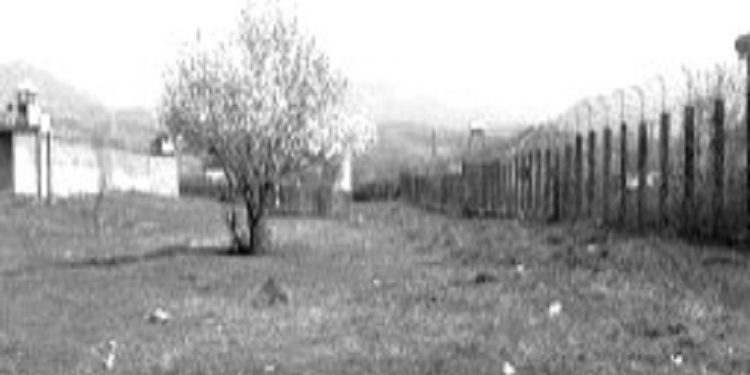

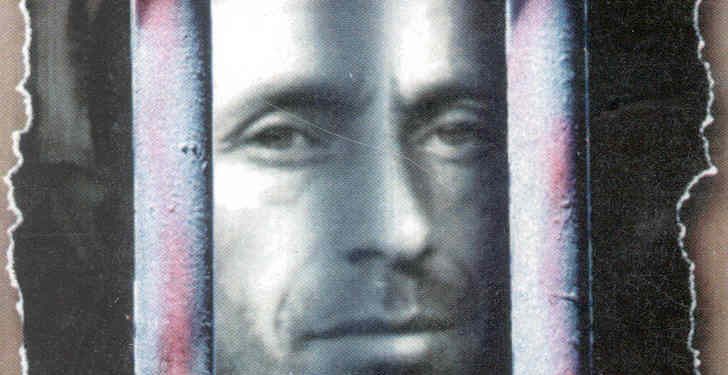
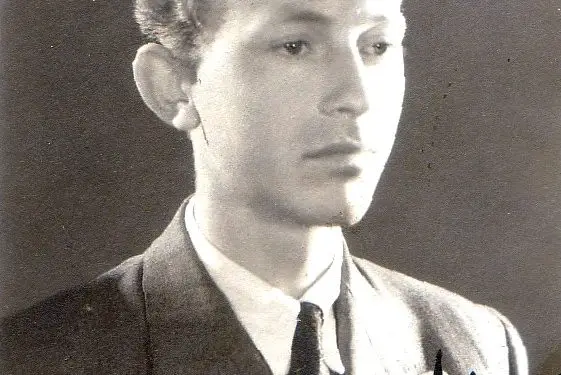
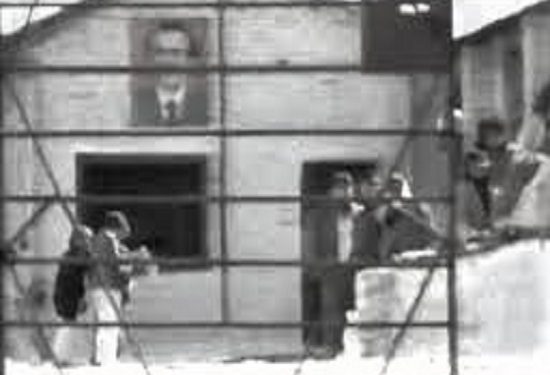
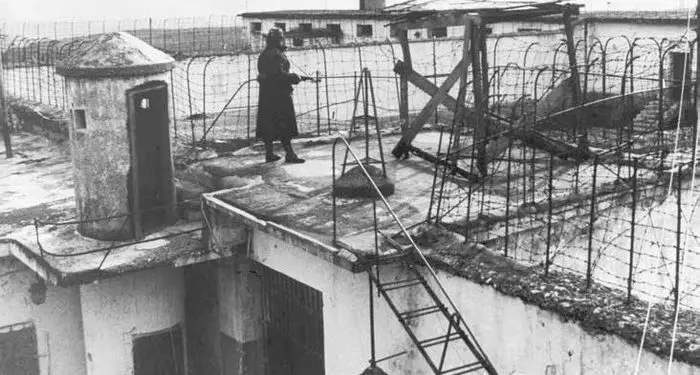
![“The ensemble, led by saxophonist M. Murthi, violinist M. Tare, [with] S. Reka on accordion and piano, [and] saxophonist S. Selmani, were…”/ The unknown history of the “Dajti” orchestra during the communist regime.](https://memorie.al/wp-content/uploads/2026/02/admin-ajax-3-350x250.jpg)
![“In an attempt to rescue one another, 10 workers were poisoned, but besides the brigadier, [another] 6 also died…”/ The secret document of June 11, 1979, is revealed, regarding the deaths of 6 employees at the Metallurgy Plant.](https://memorie.al/wp-content/uploads/2026/02/maxresdefault-350x250.jpg)




